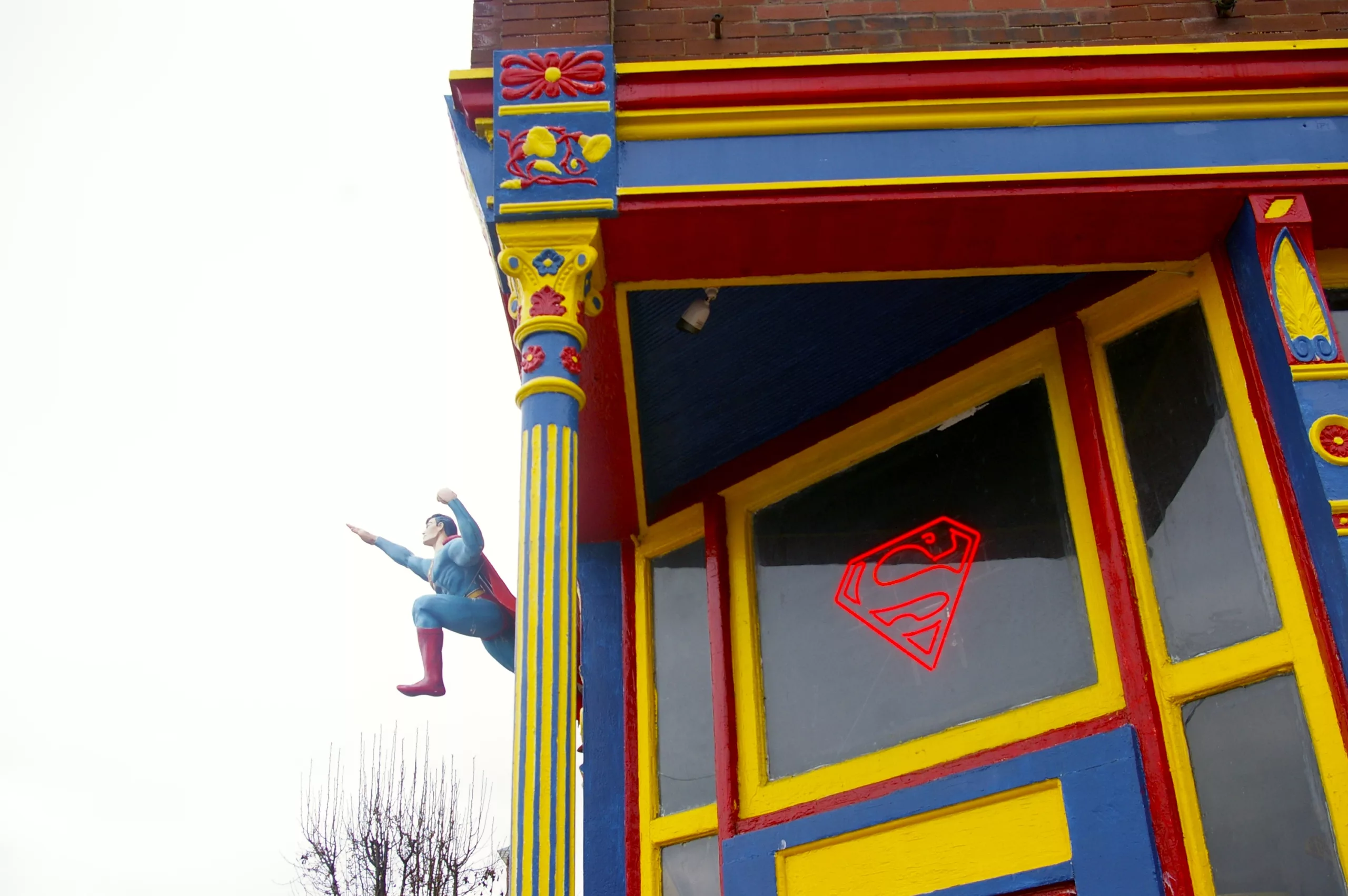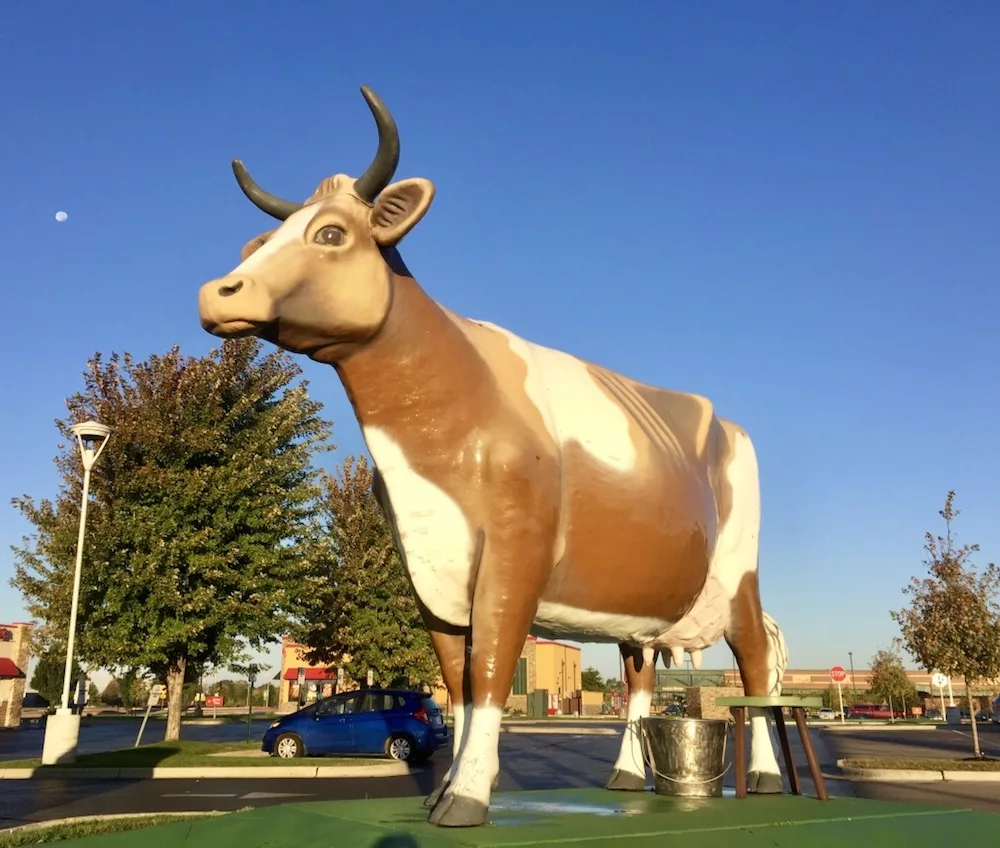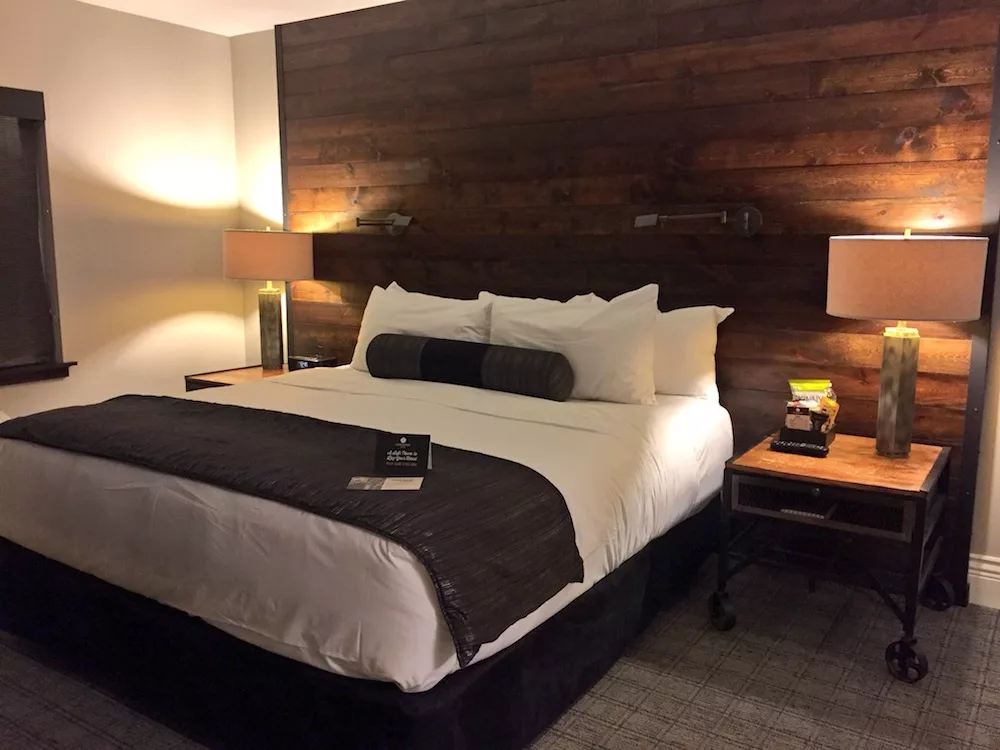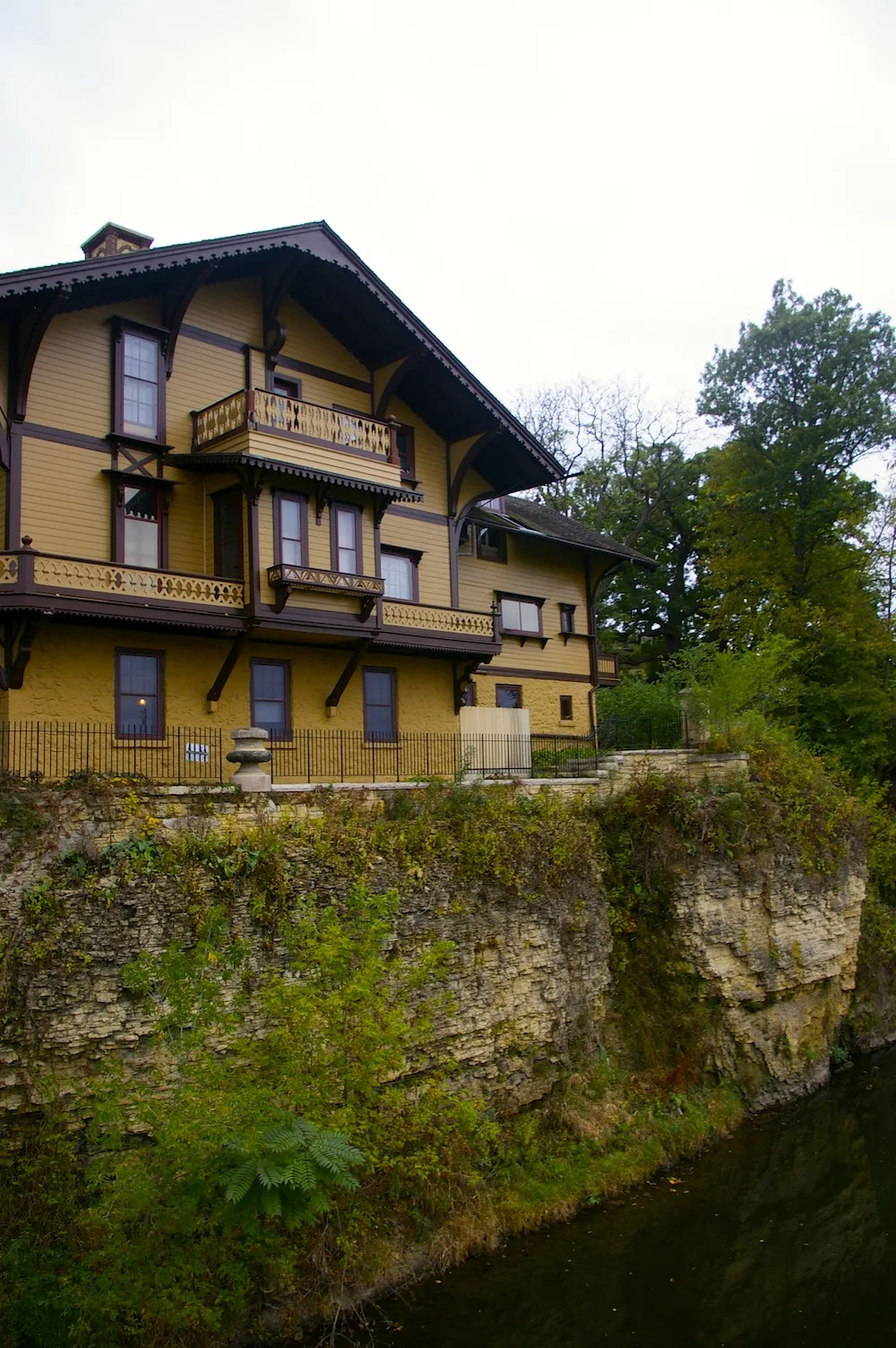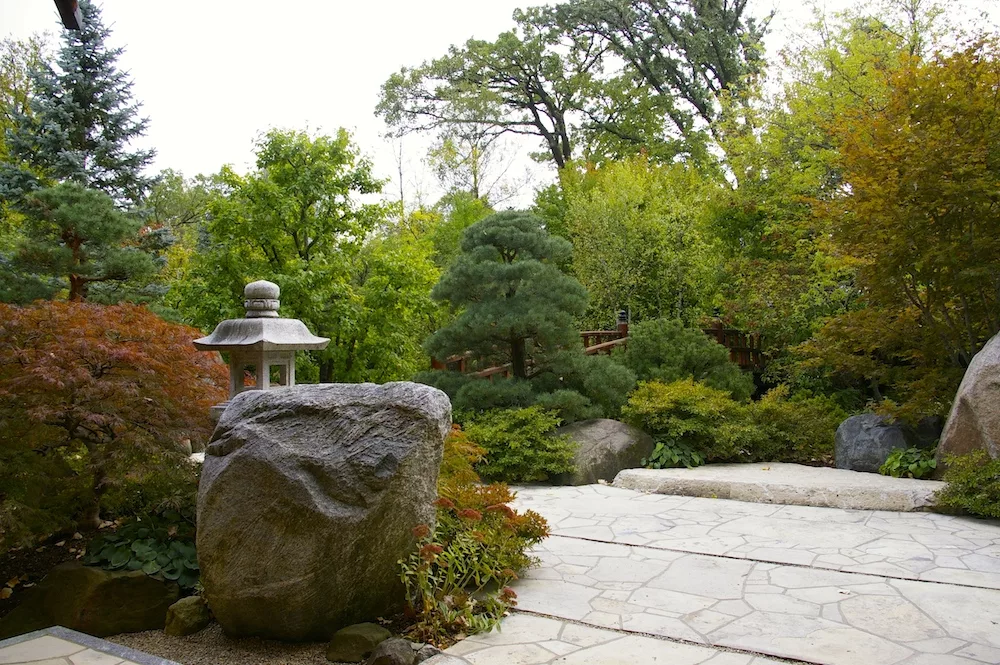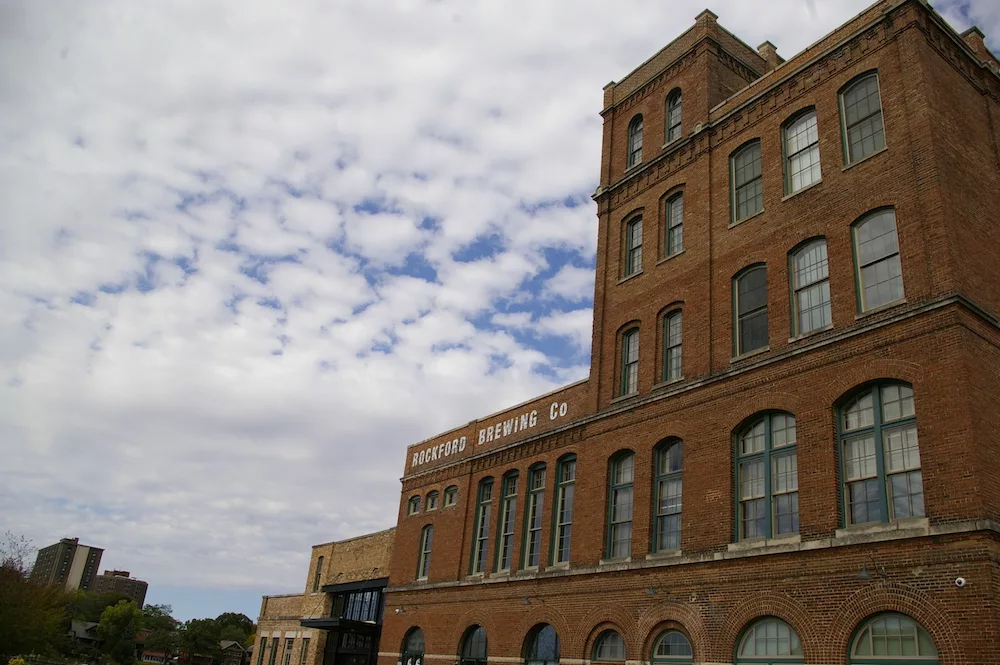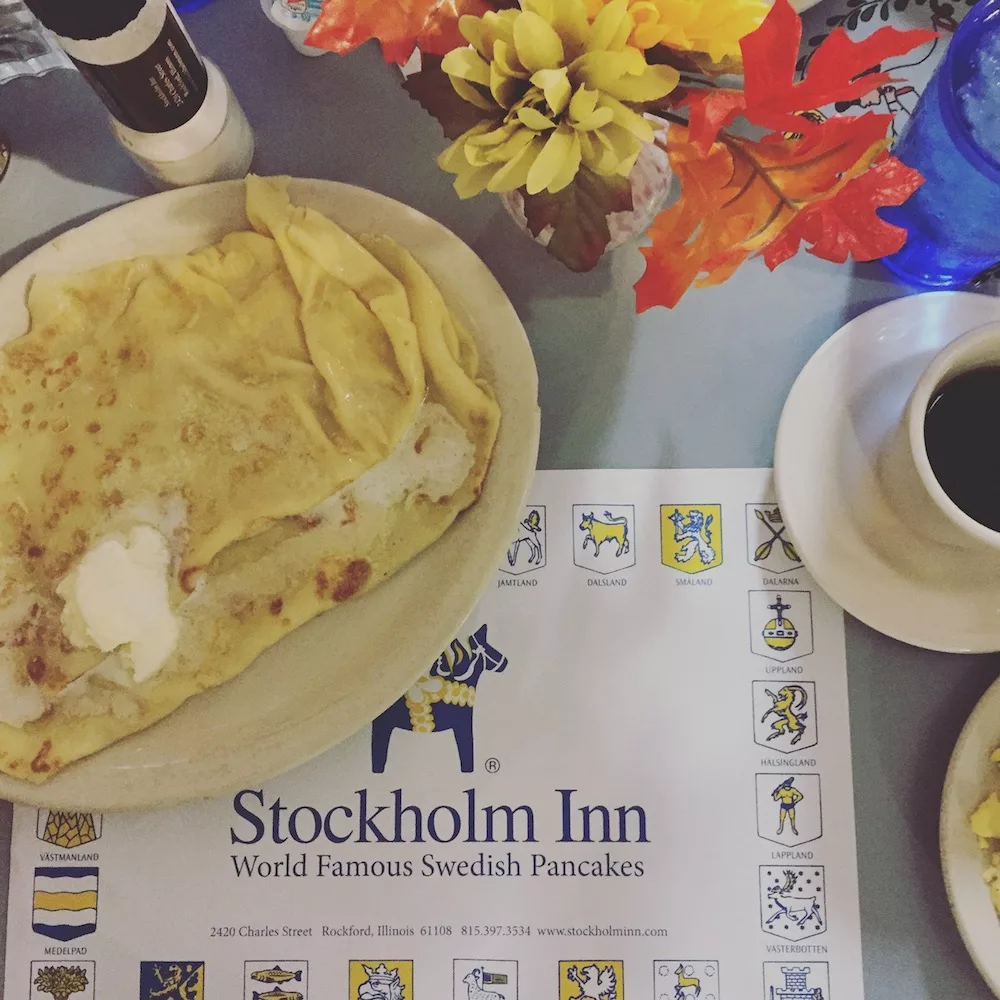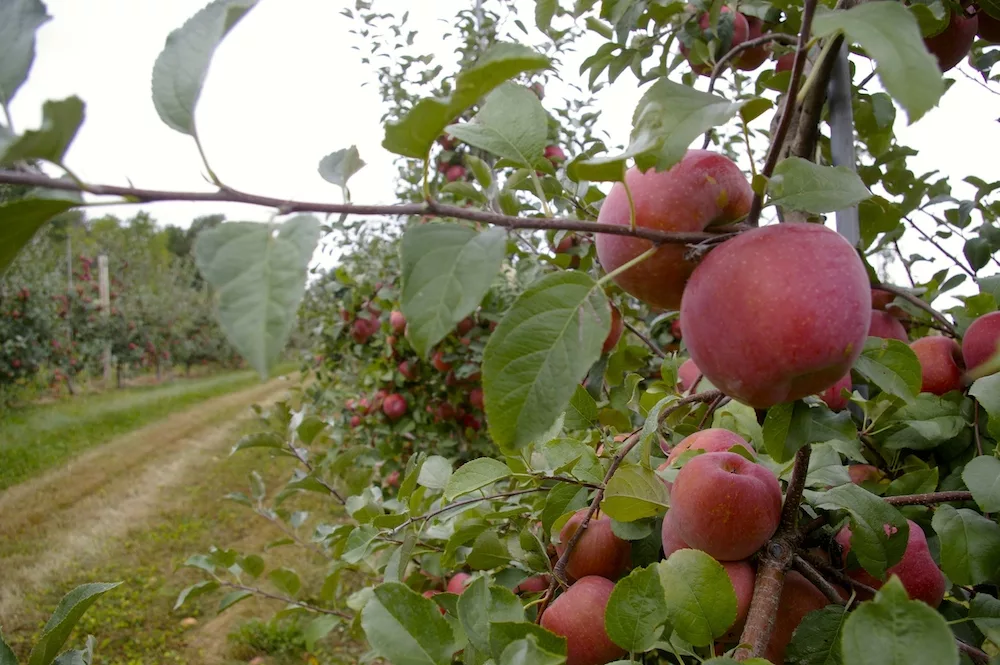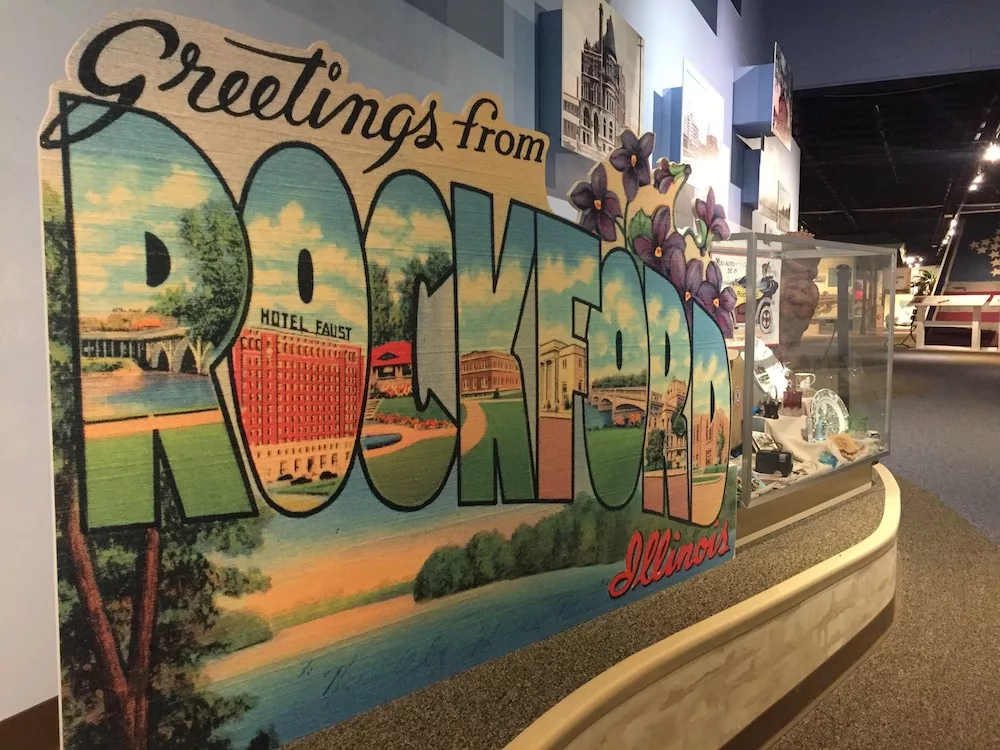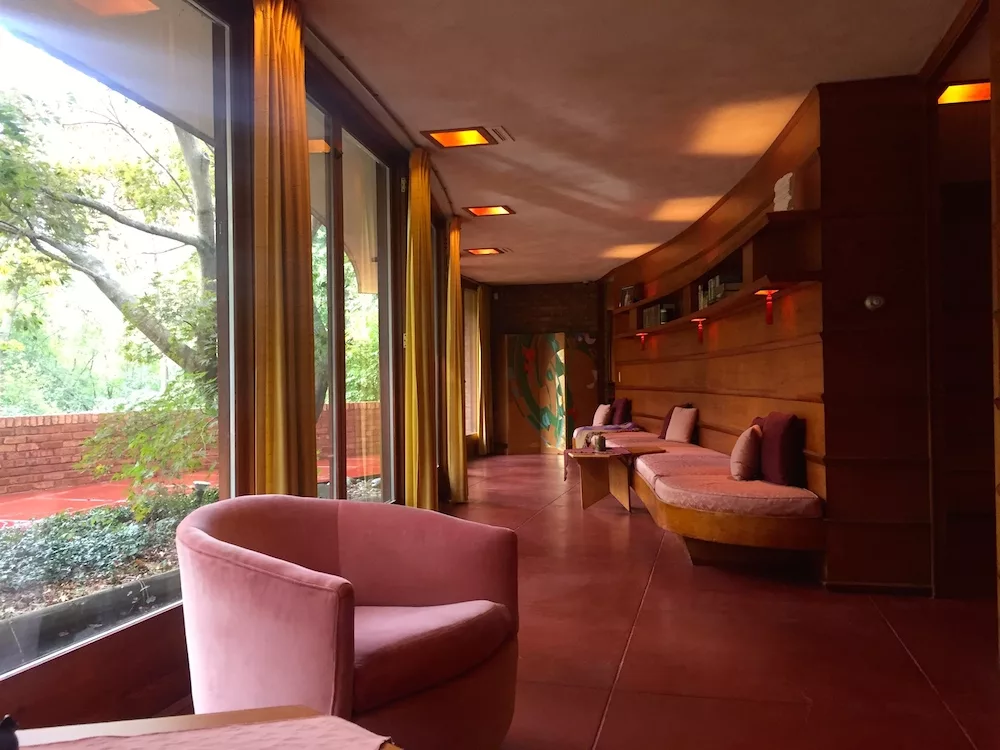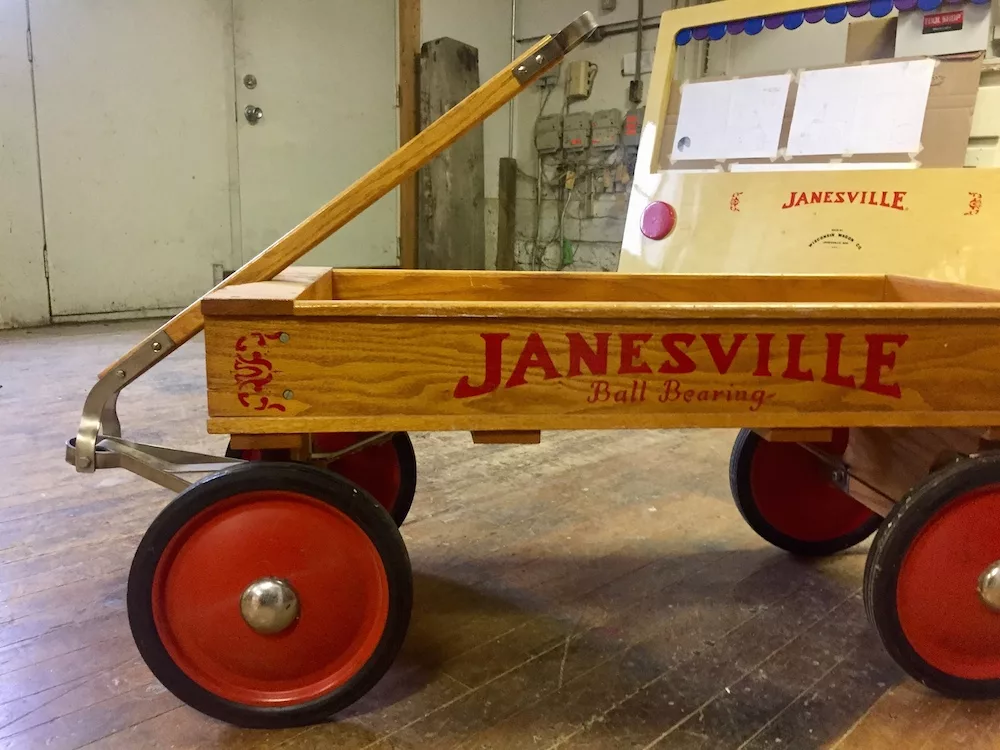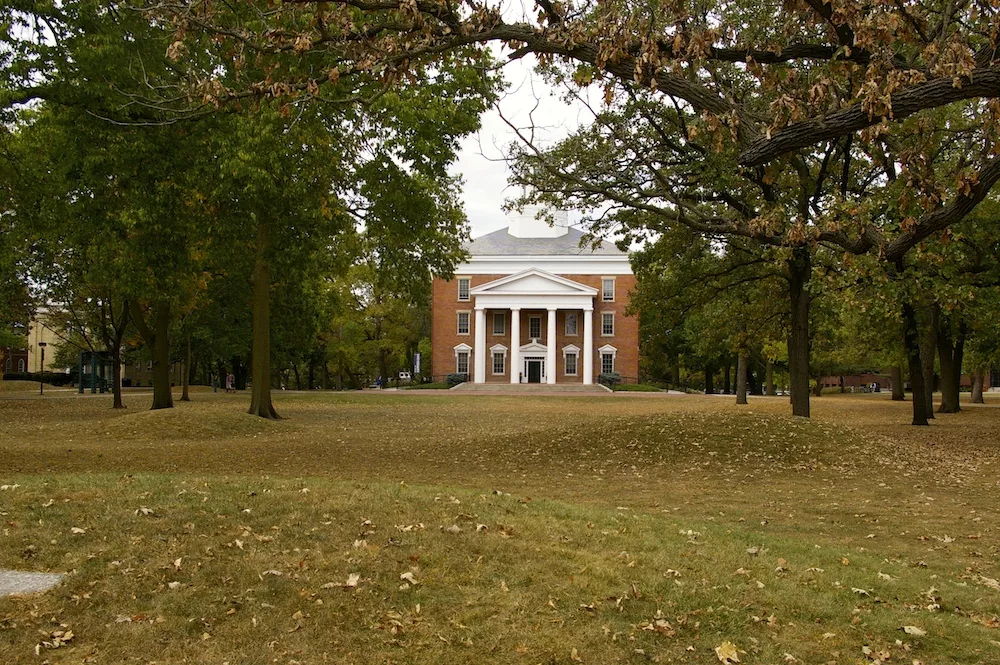Disclosure: Visit Beloit hosted my trip to Beloit and visit to Macktown Living History Education Center. However, all opinions are my own.
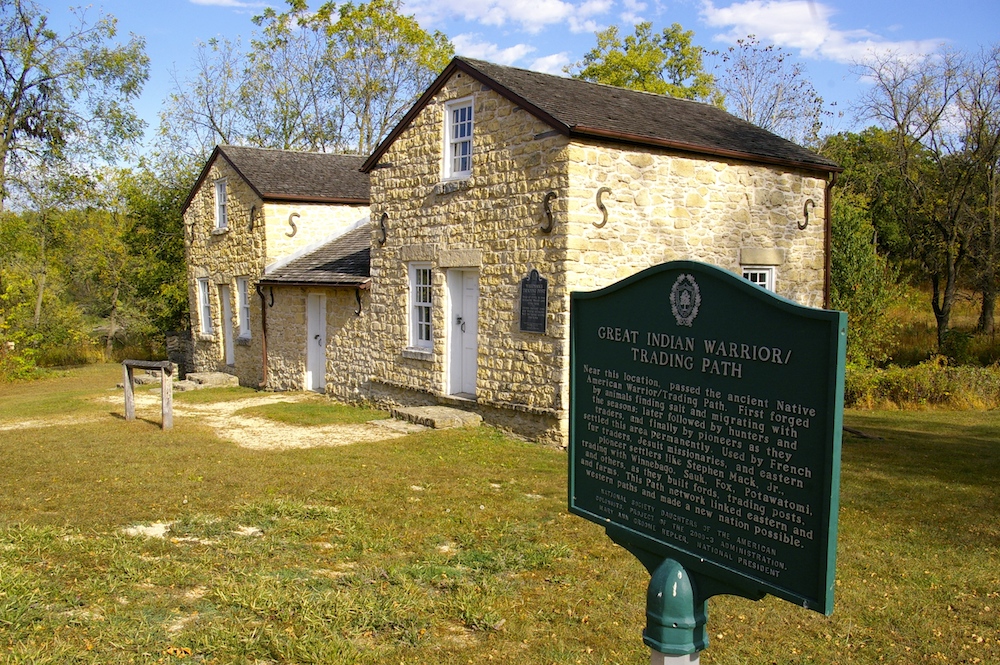
On a beautiful autumn afternoon, I headed south from Beloit, Wisconsin, across the border back into Illinois to experience a unique piece of the region’s history. On a wooded plot of land overlooking the Rock and Pecatonica Rivers, the historic Macktown settlement is nothing short of a living, breathing time capsule.
While Native Americans lived on the land as early as 8,000 years ago, Macktown is recognized as the first settlement in Illinois’ Winnebago County. Early settlers inhabited the community originally known as Pecatonic from about 1834 until 1850. Even though Stephen Mack founded the community more than 180 years old, it’s easy to imagine early settlers inhabiting this sprawling plot of land.
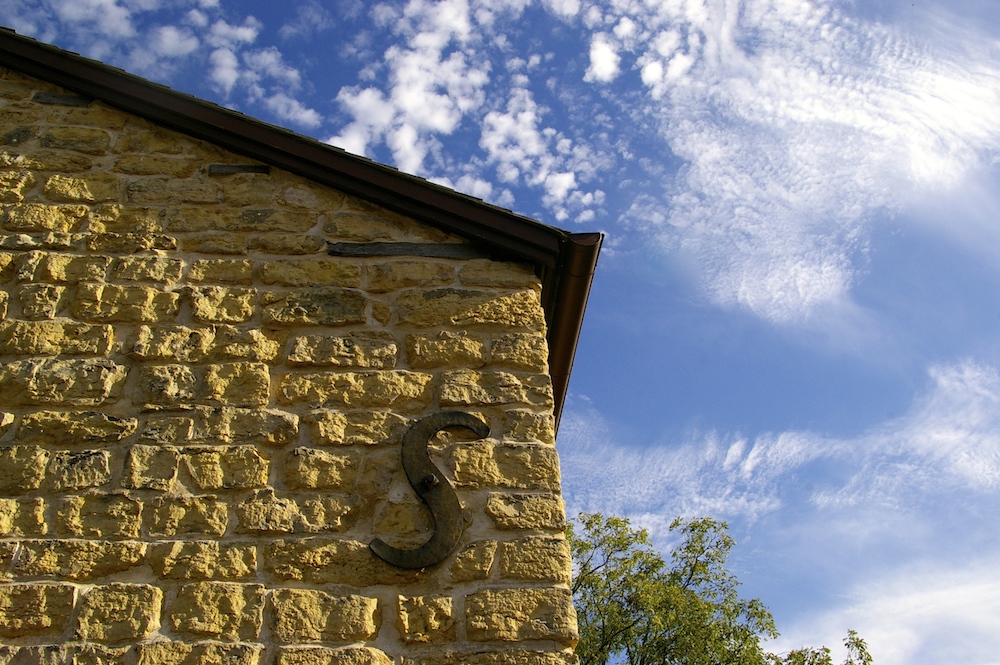

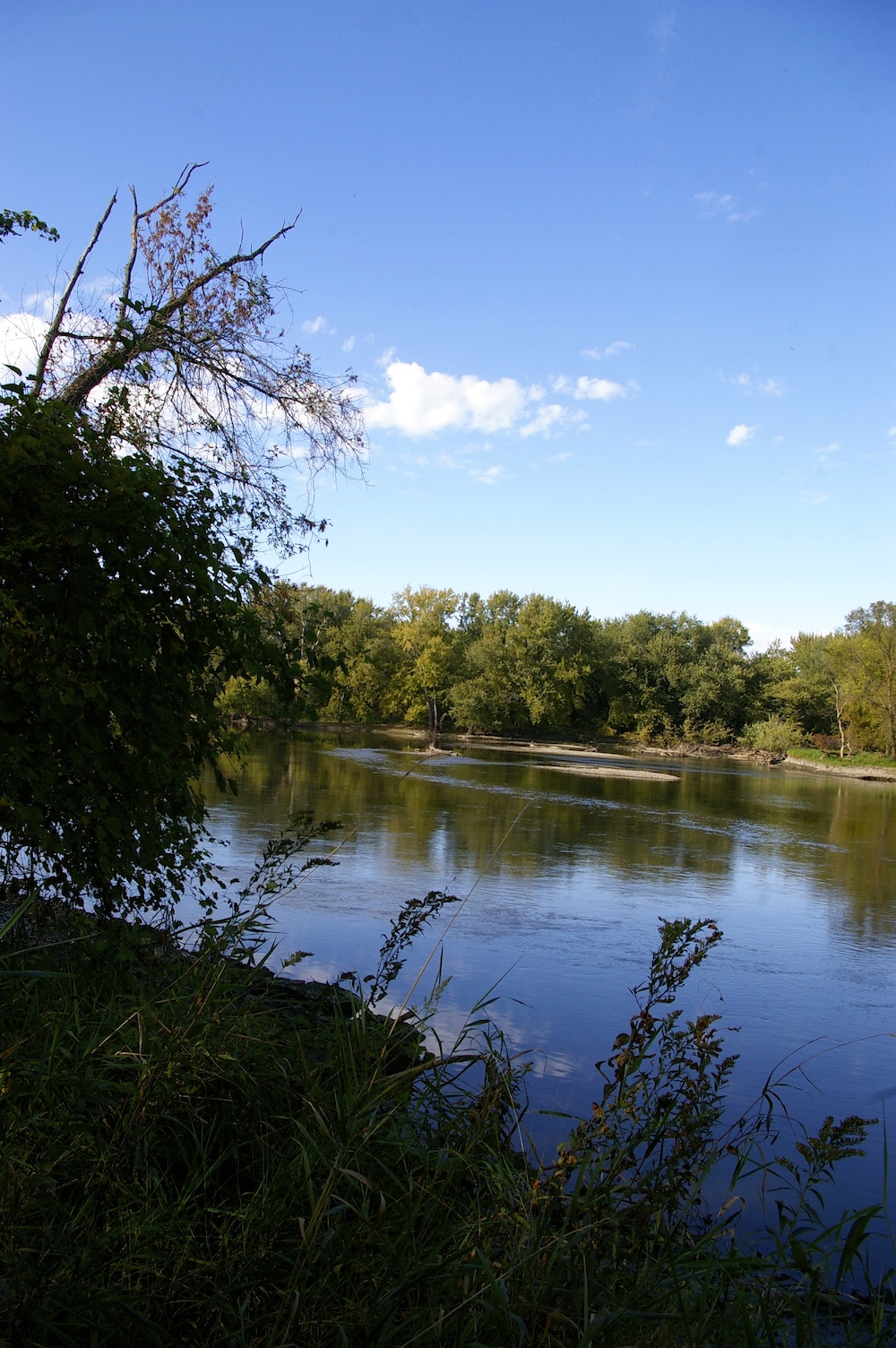

Only two buildings from the original community remain—the Stephen Mack Home and the Whitman Trading Post—but the community is still rich with impressive history. Today the National Historic Site is open to the public, and remains an active location for archaeological digs.
When I visited I was lucky enough to receive a tour of the settlement from some of the Macktown Living History Education Center’s dedicated volunteers. Exploring the settlement’s grounds is an incredible way to spend an afternoon outdoors, but it’s also an amazing way to take in some of the region’s colonial history.
Table of Contents
The Mack Family: Founders of Pecatonic
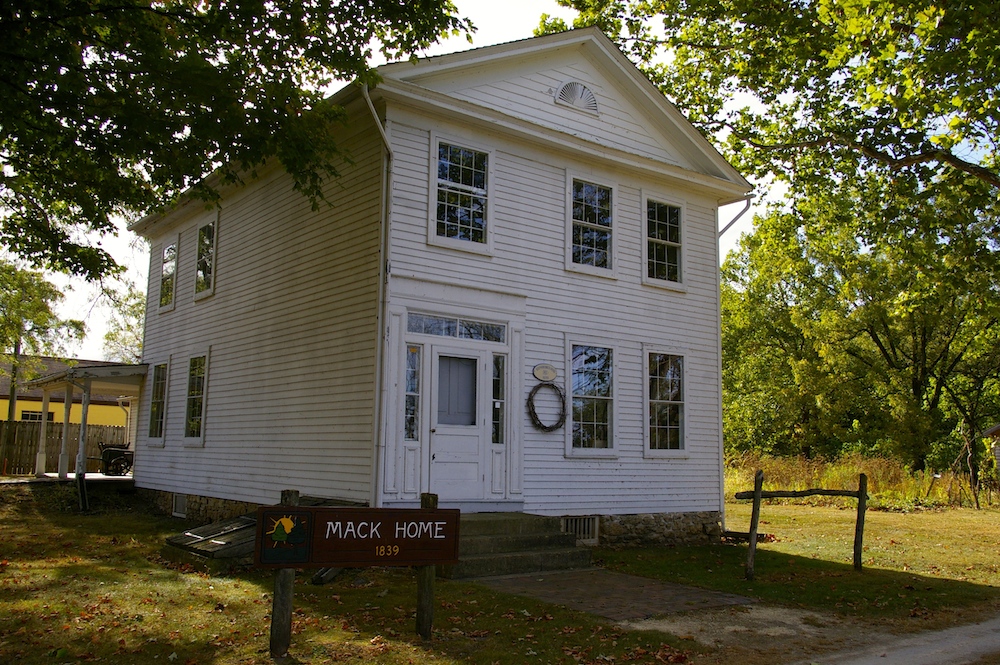
Originally known as Pecatonic, Stephen Mack, Jr., and his Native American wife Ho-no-ne-gah founded the community in the mid-1830s. Born in Vermont, Mack worked with his father for the American Fur Company in Michigan. He eventually chose to relocate to the fur-rich Rock River Valley where he met and married his wife. The couple would later purchase more than 320 acres to lay out lots for the community that became Macktown.
One of the settlement’s two original buildings is the two-story Mack Home. The family built the Greek Revival style home in 1839. The home was luxurious for its time, and allowed the Macks plenty of space to raise their nine children.
Across from the family home you’ll notice the headstones of Mack, his wife, and their son, Henry. Surprisingly, this is not the family’s original resting place. In fact, I was shocked to learn that this is actually the third place they’ve resided. Originally the family was buried near the current Macktown Golf Clubhouse. After the settlement was abandoned and the area became farmland, friends of the Macks moved the bodies to the Phillips Cemetery near Harrison, Illinois. Finally, when the Winnebago Forest Preserve District acquired the historic community, it was decided that the family should return home.
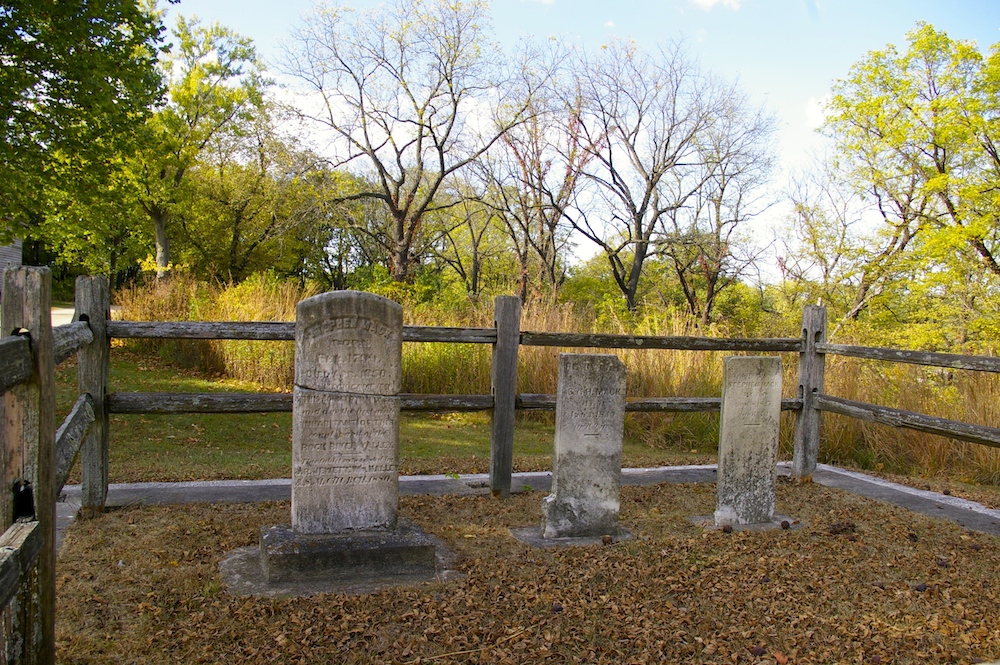

A bit of History About Macktown
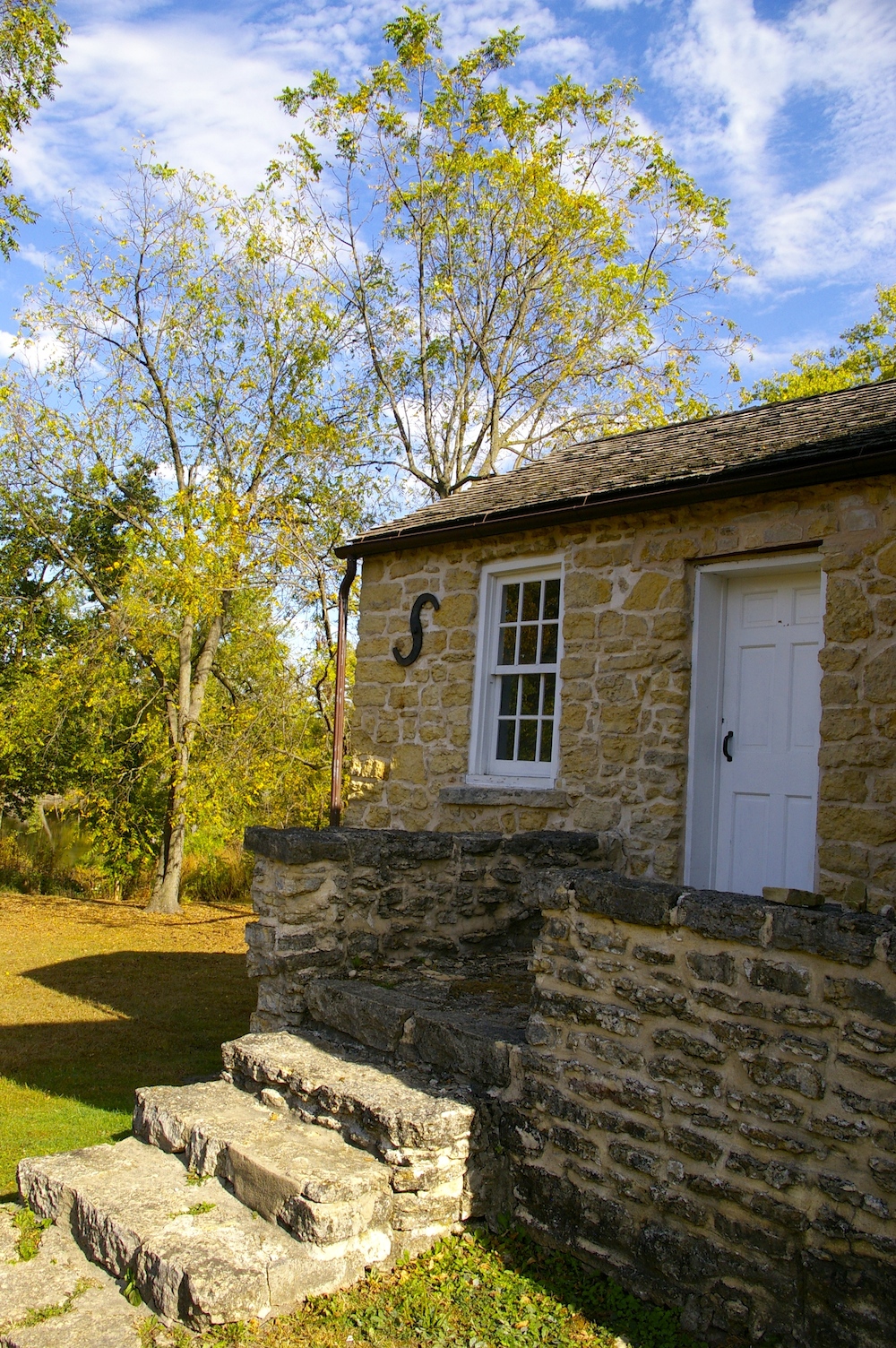

The only other remaining building from the original settlement is the Whitman Trading Post. Built from limestone in 1846, the trading post replaced the Mack’s original log store. There Native Americans and settlers alike brought goods and furs to trade and share the news of the day. The trading post sits at the edge of the Rock River where Stephen Mack once built a bridge to spark the community’s growth.
Along with these original structures, the historic district also includes a Native American Village. The reconstructed wigwams are reminiscent of what the Winnebago and Potawatomi in the area would have lived in. At the height of the community, Macktown was also home to a furniture store, a school room, a shoemaker’s shop, a tavern, fur trapper’s cabins, and other homes belonging to the population of about 300.
Unfortunately when Mack died in 1850 and floodwaters destroyed the bridge crossing the river a year later, Macktown swiftly began to decline.
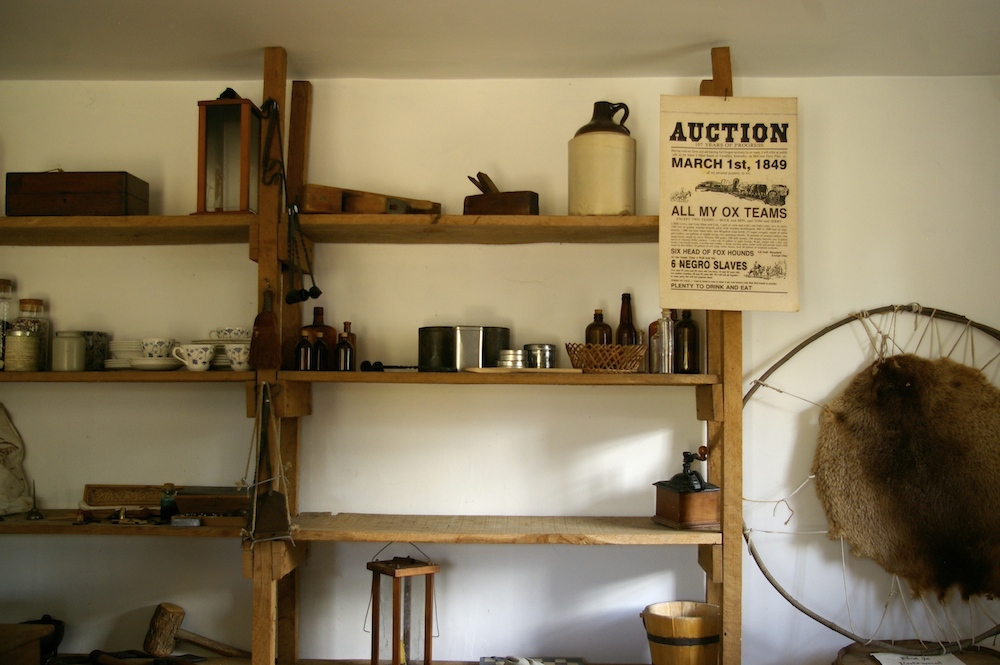

If you Visit the Macktown Settlement
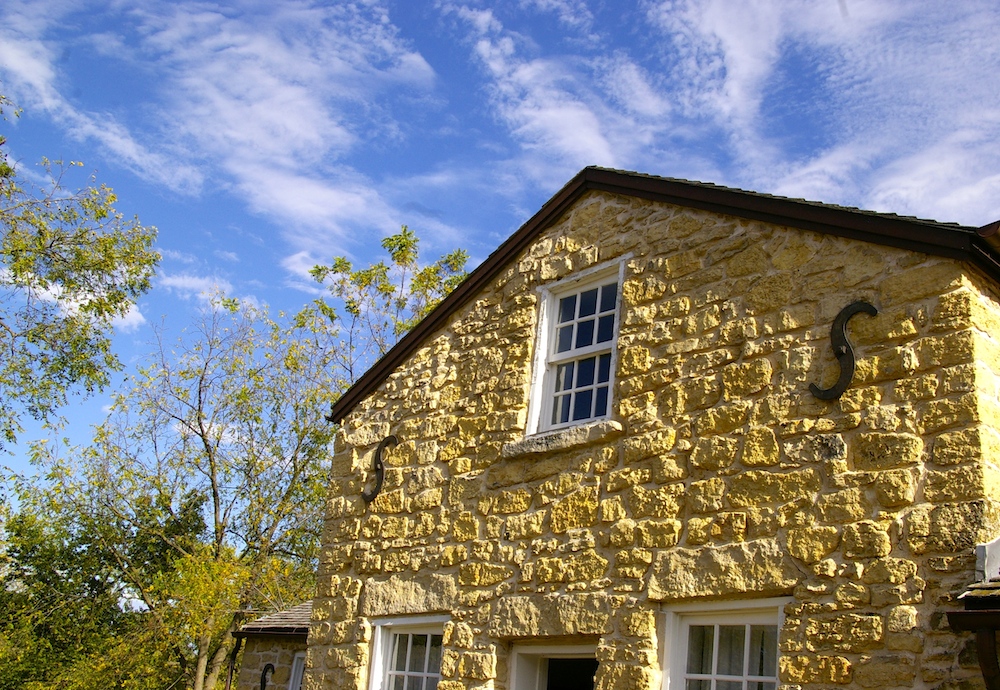

Today a group of extremely dedicated volunteers run the Macktown Living History Education Center. Its members are incredibly knowledgeable and deeply passionate about preserving this unique historical part of their community’s history. While only two original structures from the settlement remain, the organization hopes to continue growing the historic area. By recreating the structures and landscape of Macktown, their hope is to restore the settlement to its 19th-century glory.
The settlement’s historic buildings are open to visitors by appointment only. But the grounds are open to the public during regular Macktown Forest Preserve hours. The organization hosts a variety of events, including an annual reenactment weekend in April and a traditional colonial Christmas celebration. If you’re exploring the community on your own, the center has a great walking tour brochure to guide your exploration.
Driving Directions: When I went to explore Macktown, I had a bit of trouble initially finding the History Education Center. If you’re using Google Maps or some GPS systems, your final destination will seemingly be in the middle of the road. When navigating to Macktown, be sure to turn north at the main entrance for Winnebago County Forest Preserve, where S. Blackhawk Boulevard turns into Freeport Road. Continue on that road until you reach the parking lot for the visitors’ center.
Macktown Living History Education Center, Macktown Forest Preserve, 2221 Freeport Road in Rockton, Illinois
Share Your Thoughts
I would love to hear from you! What’s your favorite way to learn about local history?


Looking for more things to do in the Beloit region? Check out the other places I visited on my road trip.


